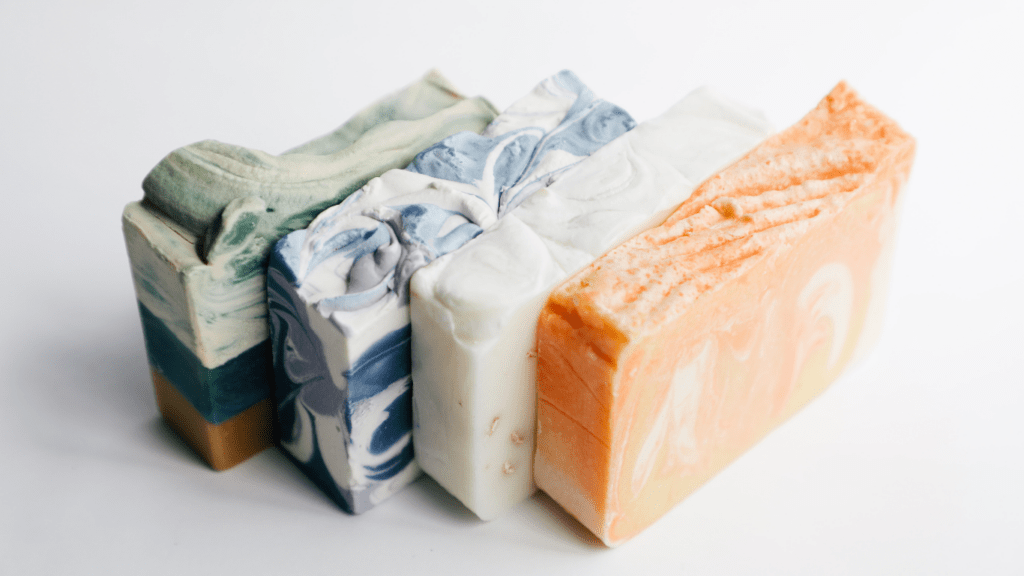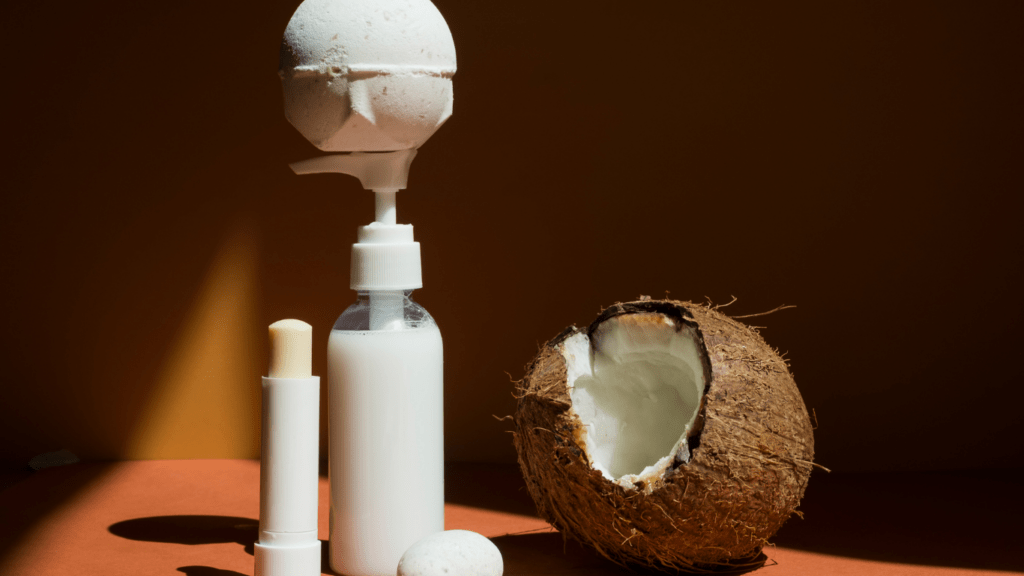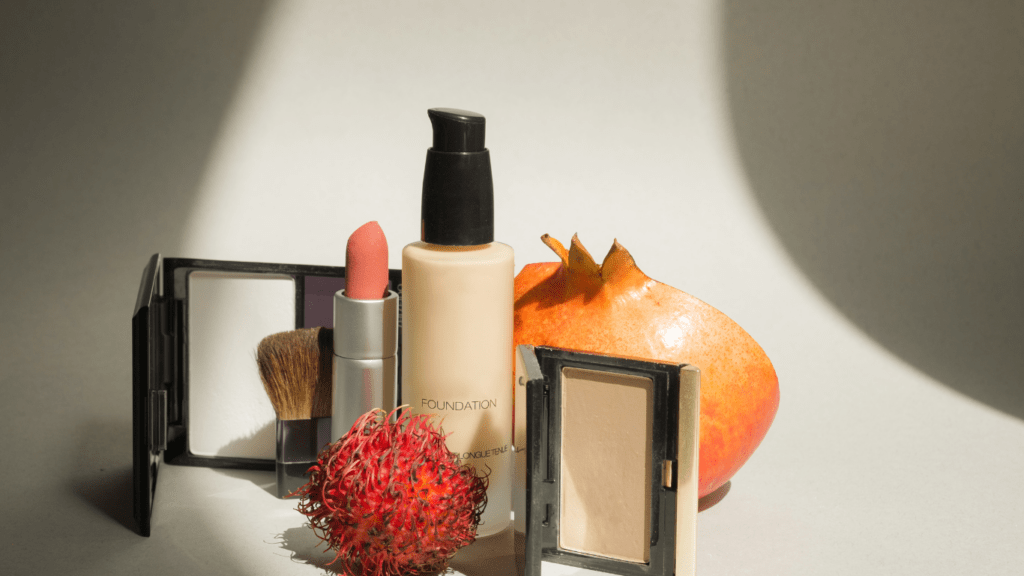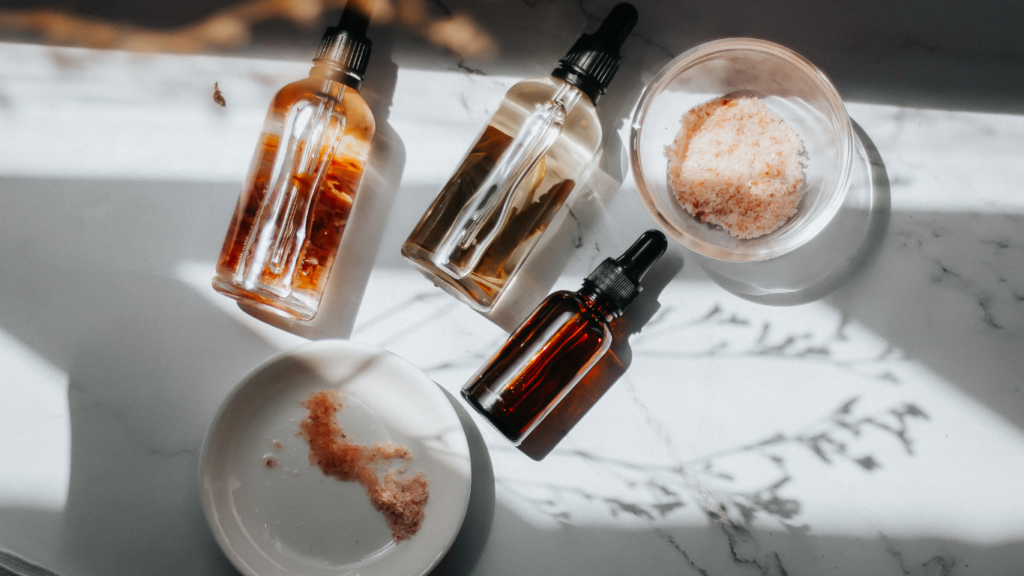Benefits of an Organic Skincare Routine
Organic skincare offers multiple benefits for healthier skin. It reduces exposure to harmful chemicals, as organic products use natural ingredients free from synthetic additives. This minimizes the risk of allergic reactions and skin irritations, enhancing overall skin health.
Natural Ingredients nourish the skin with vitamins, minerals, and antioxidants. These components are crucial for combating aging, maintaining skin elasticity, and promoting a natural glow. For example, organic aloe vera soothes and hydrates, while organic rosehip oil provides essential fatty acids and Vitamin C.
Environmental Impact improves with organic products. These items typically use sustainable farming practices and eco-friendly packaging, reducing the carbon footprint. This aligns with eco-conscious lifestyles and contributes to a healthier planet.
Ethical Concerns are addressed in the organic skincare industry. Many organic brands avoid animal testing and source ingredients responsibly. This ethical approach ensures that beauty routines are cruelty-free and support fair trade practices.
Enhanced Effectiveness characterizes organic skincare. Without harsh chemicals, natural products let the skin function optimally. Beneficial ingredients penetrate deeper, producing effective, long-lasting results without adverse effects.
Understanding Your Skin Type
Knowing your skin type is essential for creating an effective organic skincare routine. It ensures the products you use will deliver the best results without causing irritation or imbalance.
Identifying Your Skin Type
I recommend starting by observing how your skin behaves under different conditions. There are generally four primary skin types: oily, dry, combination, and normal.
- Oily Skin: This type tends to produce excess sebum, leading to a shiny appearance and frequent breakouts. If your face feels greasy a few hours after washing, you likely have oily skin.
- Dry Skin: Characterized by flakiness, rough texture, or a feeling of tightness. If your skin feels parched even after moisturizing, it may be dry.
- Combination Skin: Exhibits features of both oily and dry skin. Typically, the T-zone (forehead, nose, and chin) is oily, while other areas like the cheeks are dry.
- Normal Skin: Well-balanced and not prone to extreme dryness or oiliness. If your skin rarely experiences sensitivity, you most likely have normal skin.
Importance of Matching Products to Skin Type
Selecting the right organic products for your skin type optimizes skincare benefits. Using compatible products helps your skin stay balanced and healthy.
- Oily Skin: Choose lightweight, non-comedogenic products. Ingredients like tea tree oil and witch hazel can help manage oil production and prevent clogged pores.
- Dry Skin: Look for deeply hydrating ingredients such as hyaluronic acid and shea butter. These compounds replenish moisture and restore smoothness.
- Combination Skin: Use products that balance moisture without being too heavy. Consider ingredients like jojoba oil, which mimics natural sebum, balancing oily and dry areas.
- Normal Skin: Maintain balance with gentle, nourishing products. Antioxidant-rich ingredients like green tea extract help maintain a healthy complexion.
Essential Organic Skincare Products

For a balanced and effective organic skincare routine, choosing the right products matters. Here’s a breakdown of the essential items every routine should include.
Cleanser
Effective cleansing removes impurities without stripping natural oils. I prefer cleansers with ingredients like aloe vera and chamomile for their soothing properties. These natural elements clean the skin while maintaining moisture balance. For instance, cleansers with organic green tea extract can reduce inflammation, suiting sensitive skin types.
Toner
Toners prepare the skin for better absorption of subsequent products. Witch hazel and rose water are common in organic toners. I use witch hazel for its astringent qualities, tightening the pores, and rose water to hydrate and refresh. Both ingredients are multipurpose, catering to various skin needs.
Moisturizer
Hydration is crucial in any skincare routine. Organic moisturizers often include shea butter and jojoba oil. Shea butter provides intense hydration suitable for dry skin, while jojoba oil mimics natural skin sebum, perfect for balancing oily skin. I select moisturizers based on these components to ensure my skin remains soft and supple.
Sunscreen
Sunscreens protect against harmful UV rays. I opt for mineral-based sunscreens containing zinc oxide or titanium dioxide; these offer broad-spectrum protection without harmful chemicals. Many organic sunscreens also include antioxidants like vitamin E, which further protect and nourish the skin.
Step-by-Step Guide to Creating Your Routine
Creating an effective organic skincare routine involves establishing a morning and evening regimen, along with weekly treatments. Follow these steps for healthier skin using natural products.
Morning Routine
Start the day by cleansing your face with a gentle organic cleanser. Look for options containing aloe vera or chamomile, which soothe and hydrate the skin. After cleansing, apply an alcohol-free toner like witch hazel or rose water to tighten pores and balance your skin’s pH levels.
Next, use a moisturizer with natural components such as shea butter or jojoba oil to maintain hydration. Finish your morning routine by applying a mineral-based sunscreen with zinc oxide or titanium dioxide, providing broad-spectrum protection from harmful UV rays.
Evening Routine
Initiate your evening routine by removing makeup and impurities with an oil-based organic cleanser. Coconut oil or argan oil effectively dissolves makeup while nourishing your skin. Follow this with the same gentle cleanser you used in the morning to ensure complete cleansing.
Apply a hydrating toner, then follow up with a serum rich in antioxidants, like vitamin C or E, to repair and rejuvenate your skin overnight. Finish by applying a thicker organic night cream or moisturizer to lock in moisture and support skin repair during sleep.
Weekly Treatments
Incorporate weekly treatments to address specific skin concerns. Exfoliate your skin once or twice weekly using an organic scrub with finely ground oats or sugar to remove dead cells and promote cell turnover. Follow up with a hydrating mask containing ingredients like honey or avocado to deeply nourish and revitalize your skin.
Finally, consider a facial steam with essential oils such as lavender or tea tree oil to open up pores and enhance the effectiveness of your skincare products. These treatments complement your daily routine by providing additional care tailored to your skin’s needs.
Choosing the Right Organic Products
Finding the ideal organic products is essential for an effective skincare routine. This involves understanding labels and selecting trusted brands.
Reading Labels
Organic product labels provide critical information about ingredients. Look for certifications like USDA Organic, COSMOS, or Ecocert. These ensure the product meets stringent organic standards. Avoid products with harmful chemicals such as parabens, sulfates, and synthetic fragrances. For example, instead of “fragrance,” look for natural essential oils like lavender or chamomile. Identify and select ingredients that suit your skin type for optimal results.
Trusted Brands
Choosing reputable brands guarantees product quality and authenticity. Known for their commitment to organic standards, brands like Dr. Bronner’s, Tata Harper, and Herbivore Botanicals offer reliable options. These brands often provide clear ingredient lists and engage in ethical practices. Verify each brand’s certifications and read customer reviews. This ensures you’re investing in products that deliver safe and effective skincare.
Common Mistakes to Avoid
Many people make errors in their organic skincare routines, which can reduce effectiveness. Here are some common mistakes to avoid.
Ignoring Skin Type
Choosing products without considering your skin type can cause issues. For example, using rich moisturizers on oily skin may lead to breakouts. Understand if your skin is oily, dry, combination, or normal before selecting products.
Overusing Products
Using too many products can overwhelm your skin. Combining multiple serums, creams, and treatments can cause irritation and reduce effectiveness. Stick to a simple routine with a cleanser, toner, and moisturizer.
Skipping Patch Tests
Not performing patch tests can lead to adverse reactions. Even natural ingredients can cause allergies or irritation. Test a small amount on your inner arm before applying new products to your face.
Neglecting Label Reading
Ignoring product labels can result in using items with hidden harmful ingredients. Look for certifications like USDA Organic, COSMOS, or Ecocert to ensure product safety and quality.
Unrealistic Expectations
Expecting instant results can lead to disappointment. Organic skincare often requires consistent use over time to show benefits. Patience and consistency are key for noticeable improvements.
Inconsistent Use
Irregular application of skincare products reduces their effectiveness. Establish a daily routine and stick to it. Regular use ensures your skin gets the consistent care it needs.
Using Expired Products
Expired products can lose potency and become harmful. Always check expiration dates and store products properly to maintain their efficacy. Organic products often have shorter shelf lives, so use them within recommended periods.


 Bonnie Brown is an expert in holistic wellness with over a decade of experience in natural health and skincare. She has dedicated her career to helping individuals achieve radiant health through plant-based solutions and mindful self-care practices. Bonnie is passionate about blending ancient traditions with modern wellness techniques, making her insights a valuable resource for anyone on a journey to healthier skin and overall well-being.
Bonnie Brown is an expert in holistic wellness with over a decade of experience in natural health and skincare. She has dedicated her career to helping individuals achieve radiant health through plant-based solutions and mindful self-care practices. Bonnie is passionate about blending ancient traditions with modern wellness techniques, making her insights a valuable resource for anyone on a journey to healthier skin and overall well-being.
